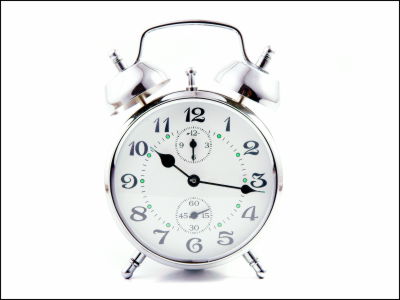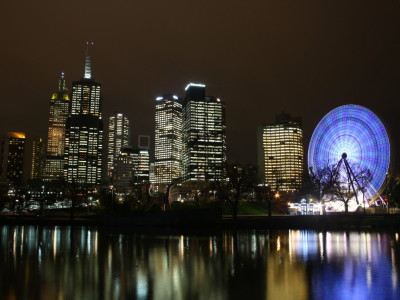Why drinkers are not good at morning? The effect of alcohol which drives the biological clock out of control

In general people who drink alcohol often have an image called night type, and many people are not good at morning. Sleeping may be over because of a lack of sleeping time due to late harvesting because of drinking until late in the evening, but not only because of it but also drinking, the biological clock has gone crazy in the first place Maybe there is.
Alcohol in hamster experimentsCircadian rhythmThe influence that it has on the birthrate has become clear.
Details are as below.How Alcohol Blunts Ability Of Hamsters To 'Rise And Shine'
American Journal of Physiology - Regulatory, Integrative and Comparative PhysiologyIt was announced in the magazineKent State UniversityChristina L. Ruby, Allison J. Brager, Marc A. DePaul and J. David GlassUniversity of TennesseeThe research by Rebecca A. Prosser investigated the effects of drinking on the change of body clock and the influence on behavior by using animal model.
Drinking isHypothalamusIt affects clock centers that exist in the suprachiasmatic nucleus (SCN). This clock center controls the circadian cycle (a cycle of about 24 hours to adjust sleeping and getting up, secretion of hormones, appetite, digestion, activity amount, body temperature, etc.), SCN controls these physiological functions in sunlight It has a role to synchronize physiological phenomena at an appropriate time in the day. If this watch goes wrong, the risk of cancer, heart disease, depression and so on will increase dramatically.
In the experiment I examined the influence of alcohol on circadian rhythm with hamsters. Hamsters are nocturnal, but we do "clock adjustment" by sunlight just like humans. Hamsters are divided into three groups, one group gives water mixed with 10% alcohol instead of drinking water, the second group gives water mixed with 20% alcohol, and the third control We gave the group water. Hamster likes alcohol more than water if there is room for choice, you can quickly metabolize alcohol. Three groups of hamsters were placed in an environment that was 14 hours brighter and 10 hours darker in the day, with the ability to drink water and alcohol solutions as much as you want.
Researchers recorded the activity levels of the three groups throughout the day. And at the end of the darkest time, we irradiated a weak light resembling the light before dawn for 30 minutes, as well as a bright light (similar to the light of the office for 30 minutes), about 3 hours before the time when the nocturnal animal usually goes to sleep I irradiated as much as the level of light). Most of the hamsters who hit the light near the end of the activity time (dark time) interpret it as bedtime and enter a system to sleep, and the next time you wake up you will get up earlier than usual. In other words, light can advance the clock inside the hamsters' body.
In the experiment I also measured how long it takes for alcohol to reach the clock center. We regularly measured the amount of hamster subcutaneous alcohol (close to the blood alcohol concentration), and in the final stage of the experiment we also returned the drinking water of the group given the alcohol to observe the effect after stopping drinking It was.
The results were as follows:
· As hamsters with more alcohol ingested, it was more difficult to adjust the rhythm against weak light irradiation. A hamster drinking only water got up in 72 minutes earlier than usual after sleeping in a weak light, whereas in the 10% alcohol group 30 minutes, the 20% alcohol group only got up early.
· In the case of bright light, hamsters who ingested alcohol could get up so early, the group of water got up 102 minutes earlier than usual, while the 20% group woke up 84 minutes earlier than usual.
· Total activity time in 24 hours was the same in 3 groups, but the group taking alcohol had intensive and intense time to move around (activity seizure) not sustained as much as the control group and few times.
- When we tried to advance the hamster's body clock again by light two or three days after discontinuing alcohol intake, the group who stopped alcohol intake woken up considerably earlier than the control group that only drinked water originally . The control group got up 66 minutes earlier, while the group with alcohol stopped waking up 126 minutes earlier than usual, this extensive reaction to light irradiation continued until the end of the experiment 3 days later.
· The hamster drank the most amount immediately after the room became dark (the beginning of the night, hamsters are usually the most active time), and the brain SCN alcohol amount peaked after 20 minutes.
Researchers say what these can be said by fitting these results to humans as follows.
· Alcohol drinkers, especially those drinking late at night, may not be able to respond to light important for the time alignment of the body clock for the next 24 hours, possibly affecting the response to light even with small amounts of alcohol intake There is.
· Even if alcohol is not taken again after 24 hours have passed since drinking alcohol, the influence on the circadian cycle will last.
· By hitting a bright light in the morning, you may be able to ease the deviation of the body clock by alcohol.
· Even after habitual drinking is stopped, the effect of alcohol on body clock continues. The hamsters who stopped alcohol intake responded excessively to light and occurred much earlier than the original time should occur, just as people who are about to drink alcohol get up early in the morning. Perhaps not being able to recover crazy circadian rhythms easily is one of the reasons why it is difficult to resist alcohol.
· Habitual drinking also affects human activity patterns, becoming inactive at the time that should be active in the daytime, becoming active at time such as late night.
Related Posts:
in Science, Posted by darkhorse_log







